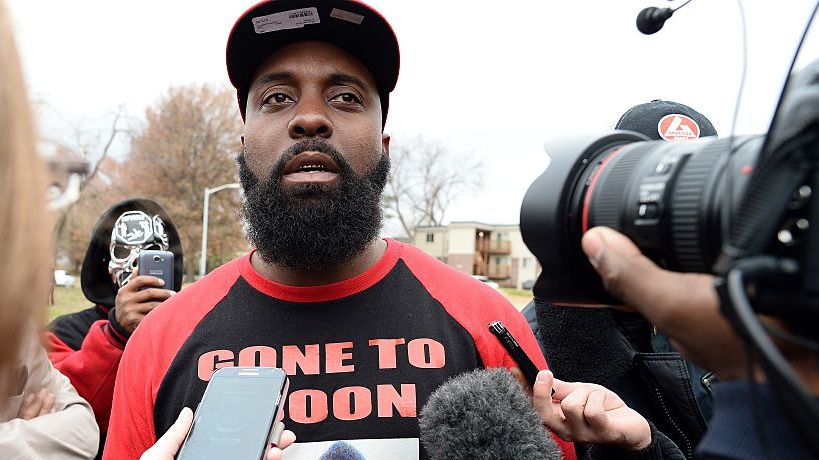Michael Brown Sr. is still mourning even as he works endlessly to change his community and honor his son.
Friday will make it five years since Ferguson police officer Darren Wilson shot and killed Michael Brown Jr. before leaving his body in the street for almost five hours. A grand jury decided against indicting him, and the Justice Department decided against seeking federal civil rights charges.
At a vigil in Ferguson on Friday, Brown called for his son's case to be reopened now that a new county prosecutor has been elected.
“As a father, I vowed to protect my children. I could not protect him that day and it breaks my heart,” Brown told CBS News reporter Jeff Pegues. “We’re not stopping until we get justice.”
Part of the reason why Brown wants the case reopened is that Wesley Bell, a local Black lawmaker, was elected as the new St. Louis County prosecutor last year. Bell was propelled into office on the wave of change built by activists in Ferguson.
Brown said during a press conference Thursday that he has known Bell since the shooting and hopes he takes steps to provide his family justice.
Bell admitted to CBS that he was a "living testament that change has been implemented in this region," but he declined to say whether Brown's case would ever be reopened. He shifted the conversation to other efforts the city of Ferguson has made to improve policing and the relationship between the town's residents and officers.
Ferguson has added a Black police chief, more Black officers, implicit bias training and body cameras to their police force, but residents still have not seen enough change. Black residents told The New York Times that they still felt the police were overly aggressive and statistics show that the situation has gotten even worse than it was in 2013.
Even though the Justice Department decided against charging Wilson, they uncovered decades of unconstitutional behavior by the Ferguson Police Department. The DOJ report said the city’s municipal court system was intentionally fining and arresting Black residents at astronomical rates in order to make more money for government offices.
The ticketing situation is still so bad that Black Ferguson citizens are forced to map out roads in order to avoid police that they know will ticket them for the most minor infractions.
The New York Times reported that Black drivers in Missouri were twice as likely to be stopped by police, and that disparity increased by 5% since 2013. It decreased for white drivers by 11%.
Brown now runs a local organization called Chosen for Change that provides support for fathers and children who have been affected by gun violence.
"I had to turn my pain into a purpose," he told CBS.
